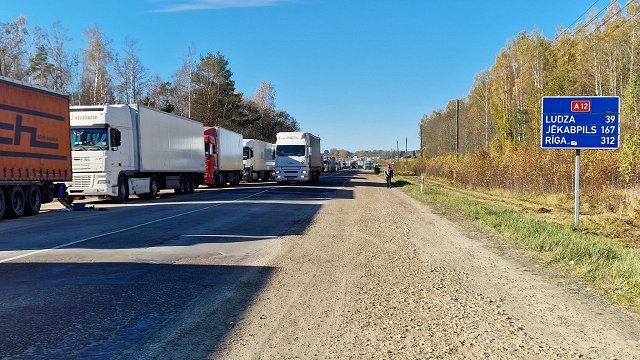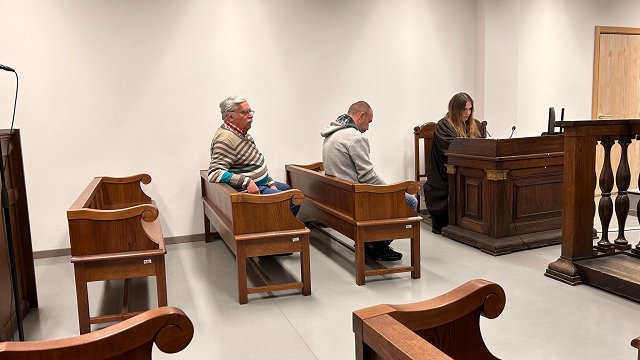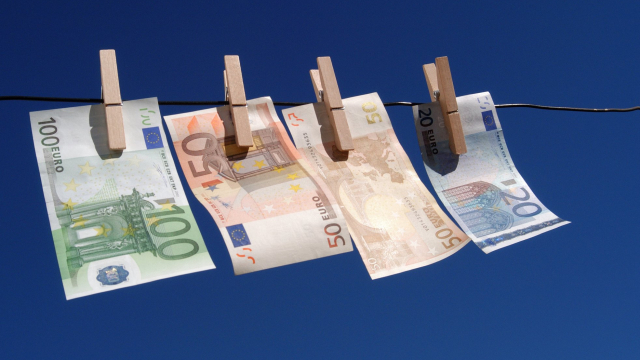Yet the majority stake in the company is owned by the Russian state company Russian Railways, it was revealed. To the likely surprise of many people, Russian Railways is not currently subject to direct sanctions by the European Union even though the essential role of Russian Railways in the politics, economy and warfare of the aggressor state is obvious.
There are EU sanctions in place on persons who were or are part of the management of Russian Railways such as the current Minister of Defense, Andrei Belousov. He headed the board of directors of Russian Railways before becoming the Minister of Defense, and is still a member of the board.
The executive director of Russian Railways was born in Latvia. Oļeg Belozerov is only on the sanctions list of Great Britain and not the European Union, reported to Vladimir Putin about the work of Russian Railways in January of this year.
In Latvia, two companies related to Russian Railways have been singled out: "Euro Rail Trans" with a 51% share of the company belonging to Russian Railways and "Euro Rail Cargo", in which the Russian side had 50%.
Initially, both companies were included in the sanctions risk table by the Enterprise Register. However, they have now been removed from that list, reported LTV.
In April of this year, the responsibility for the supervision of sanctions was transferred to the FID. And it concluded that Euro Rail Trans should not have been on the list, like Euro Rail Cargo, which had already been removed. The decision of the service is based on the opinion expressed by the European Commission in December 2022 that Russian Railways is not the subject of targeted financial sanctions.
Marta Tilhena, head of FID's Sanctions Enforcement Department, stated: "It is very important in such situations, where a common position expressed by the responsible European authorities is possible, that we then apply sanctions uniformly in all EU member states. [This is] In order to avoid situations where sanctions are applied differently in one country to another. And accordingly, this was our basic consideration."
De facto clarified that currently at least half of the 14 members of the board of directors of Russian Railways, some of whom are government representatives, are under European Union sanctions. FID has also paid attention to this and is requesting additional explanations from the European Commission.
"Considering that this board of directors has various functions, within the framework of which they make various decisions regarding Russian Railways, their operations, actions with those assets, we as the Financial Intelligence Service have also turned to the European Commission, asking for repeated clarification," Tilhena said.
The FID emphasised that it is only an enforcement authority. It applies sanctions, but does not itself make the rules about to whom they are applied - that is a political issue.
The Ministry of Foreign Affairs explained that only partial sanctions have been imposed against Russian Railways for certain financial transactions. But the complete cessation of cooperation would have to be agreed upon by all the member states of the European Union. At the same time, it is clear from the written comment of the Ministry of Foreign Affairs that this is unlikely to happen: "The role of Russian railways should be taken into account not only in European transport systems and trade with unauthorized goods from and to Russia, but also in the transit of European countries to Asia and trade with Asian countries."
Similarly the Ministry of Transport has also acknowledged that, despite Latvia's commitment to reduce cooperation with Russia as an aggressor state, the European Union has made cooperation with Central Asia one of its most important priorities in international cooperation.
Andris Maldups, director of the Transport Logistics and International Cooperation Coordination Department of the Ministry of Transport, explained that in order to do business with central Asia: "It is necessary to ensure the acceptance and transfer of freight trains between the two [Latvia's and Russia's] railway companies. Therefore, this cooperation is at a minimum level and must be maintained. This is also well known in the European Union, and therefore there are no restrictions on such cooperation."

























